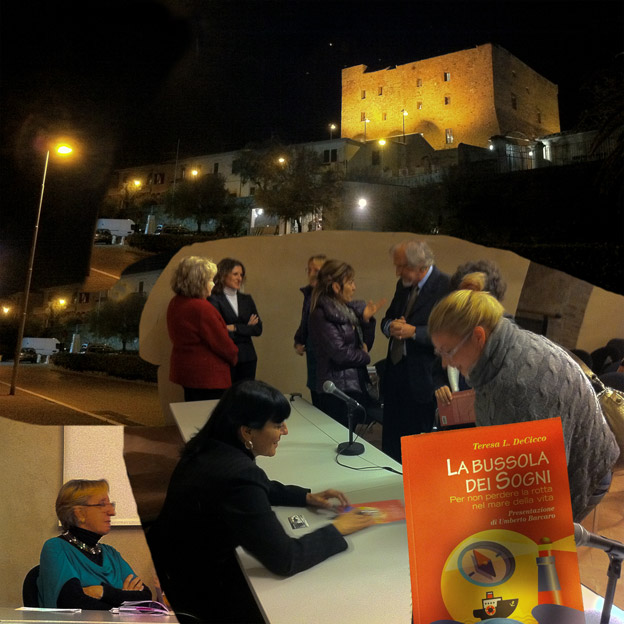In a recent study which explored the dream content and discovery (meaning) of the dreams of women with breast cancer, several very important findings were revealed (DeCicco, Smit, Scharfe & Kerr). There have actually been very few studies that have directly examined the dreams of cancer patients. More commonly, studies have looked at the use of dream interpretation as a therapy technique for this group. From our recent study, some of the findings are listed here.
There were important connections among dream content categories (e.g. colour, location of the illness, torso, being lost) and waking day demographics directly related to cancer (e.g. number of treatment modalities, lymph node involvement, radiation therapy). For example, those who had radiation had a negative relationship with dark colours in their dreams. Those who had lymph node involvement had more white colour in their dreams. Also, those who had attended a support group had less references to their disease in their dreams. It appears that waking day issues are connected to the dreams of women with breast cancer in many important ways.
So what did these women discover from their dreams using The Storytelling Method (TSM)? Some very relevant findings are that the farther they are away from diagnosis, there is more happiness in their discovery, more meaning out death and dying, and more meaning in their support. The farther they are away from their first treatment, the less discovery about medical conditions. Also, if they had chemotherapy as a treatment, discovery was related to apprehension. If they had surgery, then there was less discovery about the disease reference.
When comparing the dreams of women with breast cancer to those without breast cancer, they significantly differed in apprehension, confusion and sadness. They also differed in categories of death/dying and the torso. In terms of discovery, the two groups had completely different discovery categories from their dreams. The women with breast cancer discovered things related to their illness, treatment, their body, or their negative emotions. Women without breast cancer on the other hand, discovered such things as their family, future, friends, and romantic relationships.
These are just a sample of the results from the recent study but it appears that dream interpretation for woman with breast cancer can be very useful. They tend to suffer nightmares, negative dream imagery and worry, therefore, dream interpretation with TSM may help them make sense of their nighttime mentations.
In order to explore this further, a new study is underway with women in treatment groups using The Projective Method of Dream Interpretation (DeCicco, Pannier, Lyons, 2009). The research on dreams, breast cancer, dream content and discovery has begun but much work is needed to fully explore this area. Of course the work must also be extended to other forms of cancer and then other diseases, where patients may directly benefit from exploring their dreams.
For more information on the complete study please feel free to email me directly.
Subscribe to:
Post Comments (Atom)




Vorrei fare una domanda che ti sembrerà un po’ strana.
ReplyDeleteLa donna con un tumore al seno ha di fronte la morte , è nel dubbio riguardo alle scelte da fare , nel senso di colpa per essere stata colta da una malattia così grave .
Mi sembra molto difficile che sia motivata e disponibile ad un lavoro sui propri sogni
se non è il medico che la segue che glielo consiglia . E la nostra classe medica non è così aperta e sensibile .
Credo che noi possiamo poco se non abbiammo la collaborazione del medico , che troppo spesso non c’è .Il medico di solito considera il lavoro psicologico come un sostegno al suo lavoro, quando va bene , un placebo , un intervento solo affettivo …
Nella vostra realtà è diverso?
Donatella asks some very important questions: How/why are women with breast cancer motivated to do dream work? Are medical doctors against this type of work? When dream work is successful, do they consider it a placebo?
ReplyDeleteThe research we conduct are with 20 or more so results are not from one patient. We use statistical techniques and exerimental designs such that, we are careful of what we are measuring. To answer her questions:
1) Women with breast cancer tend to have high negative imagery and nightmares. They often seek out dream interpretation in order to get relief from these images. Also, they would like to know what the dreams "mean", so they are looking for help with that as well.
2) Medical doctors are using dream work or refering patients to dream work more and more. They tend to do this if; a) the dream work is a COMPLIMENT to other modes of therapy and, b) the methods have been scientifically tested. Ensuring that we use methods that are complimentary to other modes of therapy such as chemotherapy or CBT makes dream work more attractive. Of course, the more we publish and study them, the more credibility they have.
3) I myself only use techniques that have been scientifically tested. This ensures that if discovery occurs then it is from the method itself.
I am finding that medical practitioners are becoming more open to this work as they are to meditation and visual imagery. Our part is to test our techniques, publish our findings, and to add dream interpretation to a treament program as a compliment to other treatments.
Sono d'accordo!
ReplyDeleteFascinating study. I am personally convinced that dreams are useful in healing any kind of physical or emotional illness, but I'm happy to see this being scientifically studied. You may be interested in a book called She Who Dreams: A Journey into Healing through Dreamwork by Wanda Burch (New World Library, 2003). The author used her dreams to guide her after being diagnosed with breast cancer. It is a moving first-person account of the power of dreams in healing.
ReplyDeleteI have read the book by Wanda Burch and I too, highly recommend it. In my practice I see dreams bring important information from the unconscious mind into the conscious mind, for patients. No doubt this is an important function of consciousness that we can continue to learn about and share with others.
ReplyDeleteDonatella points out that medical practioners are slow to accept this healing modality however, with our joined efforts in research and practice, we can share this work until it becomes mainstream.